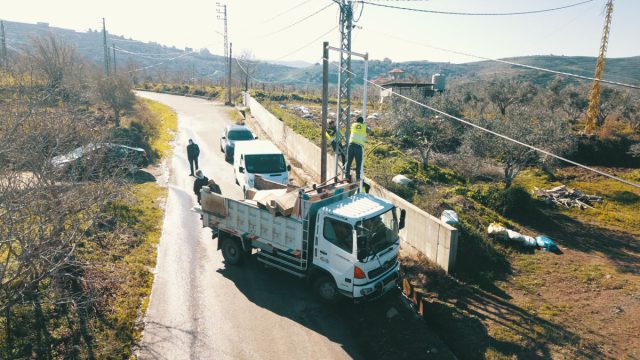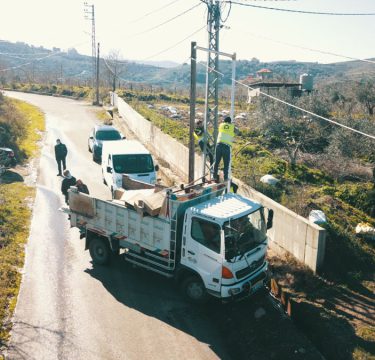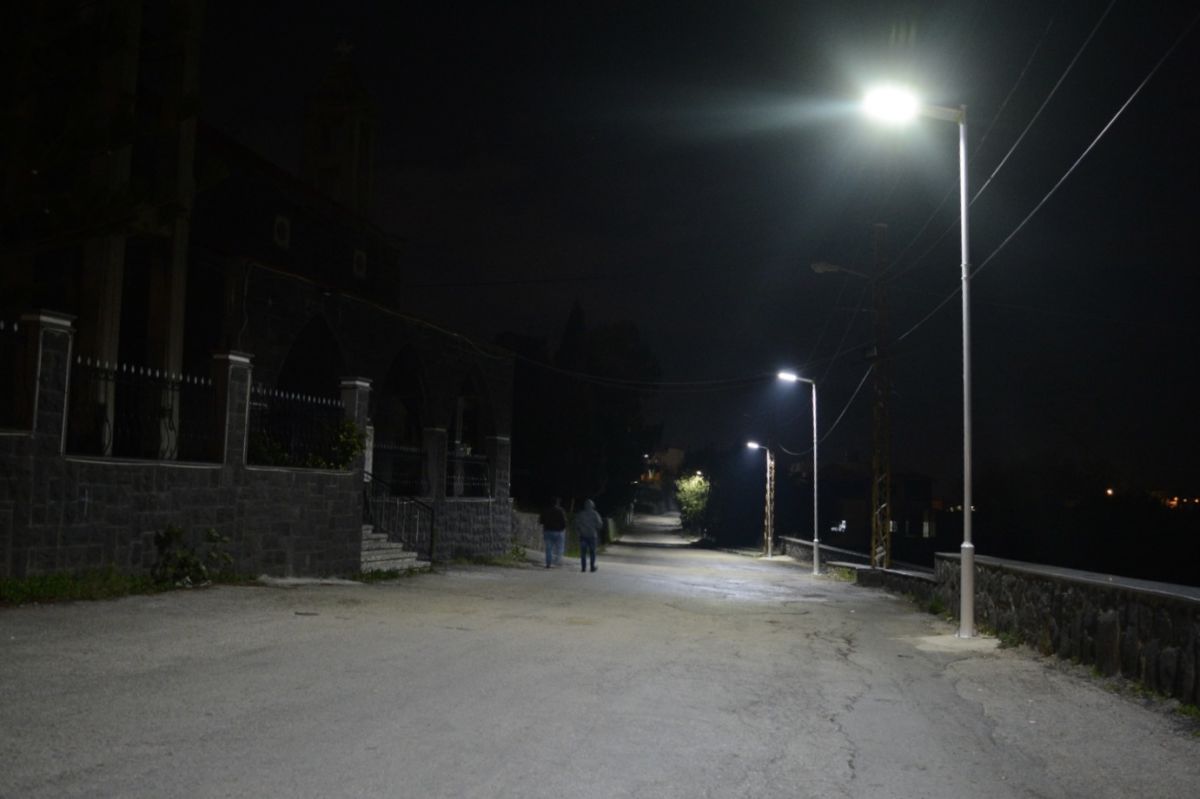It’s ecological and safer in Lebanon thanks to solar lanterns


• The widespread use of combustion power generators in Lebanon pollutes the air
• Many accidents take place in dimly lit streets in the Akkar district
• The PCPM Foundation, thanks to the support of Polish aid, illuminated roads with solar lanterns in four municipalities in the north of the country
The air pollution level in Lebanon is high. The fairly widespread use and use of internal combustion power generators do not improve the situation. However, the inhabitants of the country do not have much choice. The “state” electricity is supplied to them from the national grid for a maximum of eight hours a day. They make up the rest of the deficit with electricity generated from private resources, which significantly contributes to air pollution, and thus the degradation of the entire environment. Renewable energy sources such as solar cells and lamps are the solution.
Lighting on Lebanese roads and streets – especially in the Akkar district, where the PCPM Foundation helps Syrian refugees thanks to the support of Polish aid – is quite modest. Some roads are completely dark after dusk and even lights from the surrounding houses do not reach them. As a result, they are dangerous also for pedestrians. Among the Syrian refugees or even Lebanese who need help, many are injured and unable to work. They are also helped by the PCPM Foundation in Lebanon.
SUPPORT THE SYRIAN REFUGEES
Lighting in other Lebanese streets works only when electricity is supplied from the state-owned supplier, and only some of the street lamps are lit during power outages. Unfortunately, in Lebanon, due to the deepening economic crisis, there is no chance for a quick improvement in the situation. Contrary – longer and longer power outages are anticipated.

The PCPM Foundation, thanks to the funding of Polish aid, was able to purchase and install a total of 93 solar lanterns (powered by solar energy) on several roads in Akkar. Street lamps have been installed in places where it is easy to find accidents, in four communes (Tleil, Andaket, Aydamoun, Nahriey) in the north of the country, where Syrian refugees live and are assisted by a Polish organization. Renewable energy, which powers the lanterns, additionally allows to limit the production of exhaust gases from generators, which also reduces air pollution.